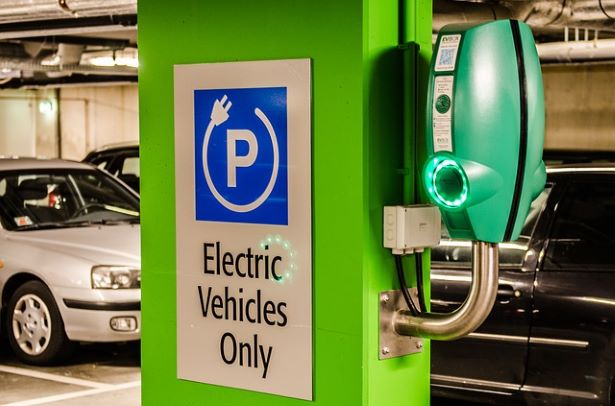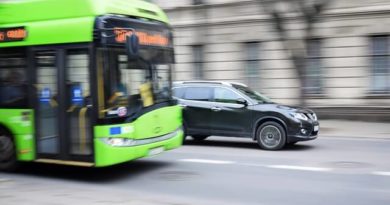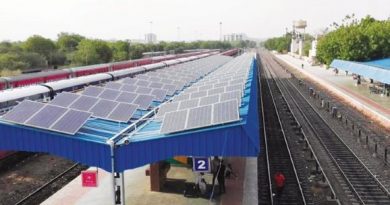Tata Power partners HPCL to set up EV charging stations in India
 Official buildings may soon see EV chargers
Official buildings may soon see EV chargers
The push for quality EV infrastructure got some strong momentum with Tata Power, one of India’s largest integrated power utility firms and Hindustan Petroleum Corporation (HPCL), a Navratna Oil and Gas Public Sector Undertaking (PSU), today announced the signing of a Memorandum of Understanding (MoU), to set up commercial-scale charging stations for electric vehicles (EVs) at the HPCL retail outlets and other locations across India. EV charging infrastructure has been a tricky issue till date, much like the riddle of he chicken crossing the road. With the largely unorganised sector E Rickshaws already running in their millions with next to no infrastructure, for any further growth, a formal EV charging push is a necessity today.
The MoU states that Tata Power and HPCL, will collaborate in planning, development and operation of charging infrastructure for electric vehicles (e-cars, e-rickshaws, e-bikes and e-buses among others), at suitable locations across India. Both the companies will also explore areas of opportunities and collaborate in related fields like renewable energy.
Praveer Sinha, CEO and managing director, Tata Power, said, “We are delighted to announce our partnership with HPCL. It is a significant move towards expanding our services to our customers beyond conventional boundaries. By servicing electric vehicles through the proposed charging stations across India, Tata Power will be playing a crucial role in enabling a stronger penetration of EVs in the country. Thus fulfilling our commitment to power India’s future in an environmentally sustainable way.”
Rajnish Mehta, executive director, Corporate Strategy Planning and Business Development, HPCL said, “At HPCL, we are a firm believer in business diversification and being future ready. A major impediment to electric vehicles adoption is the range anxiety which needs to be addressed through establishment of nationwide charging infrastructure. We believe that a robust network of charging stations is very critical for market acceptability of EVs which will also ensure last mile connectivity and thereby facilitate widespread adoption of EVs.”
In another development, Indian Renewable Energy Development Agency Ltd. or IREDA signed an MoU with REC, to work together to promote Renewable Energy development across the country. The MoU was signed by on 26th September 2018 in MNRE, New Delhi.
While signing the MoU, Mr. Popli said “by coming together, REC and IREDA can address substantial financing requirement for the sector seamlessly, at a time when need for financing large projects would grow exponentially in coming years”.

Details of the MoU is yet to be announced but many PSUs like GAIL and state governments have been coming closer to push for the electric vehicle acceptance, and financing could give an additional weight in favour of EVs.
Last week, Jharkhand inducted a fleet of 20 e-cars for official use, having already set up 12 charging stations. Uttarakhand has already received 20 electric cars, for which rent will be paid to EESL. Gurugram has said it would add 400 e-buses by mid-2019; Gurugram will also procure 25 cars for its officials. Transport Minister of Tamil Nadu, has announced that 80 buses will be run in Chennai and 20 in Coimbatore. Maharashtra yesterday got 5 EVs too. Similar plans were made earlier this year by the governments of Goa, West Bengal, Assam, and Kerala. Many of them had done trial runs with one or more buses, and were optimistic to begin with.
All this could be a domino effect of the centre planning Rs 1,000 crore sops for the EV charging infrastructure. The Department of Heavy Industry (DHI) expects total investment of about Rs 2,000 crore to set up 1,000 charging stations across the country. The ministry’s contribution will be Rs 1,000 crore while the remaining amount will be contributed by private players.
The ministry plans to spread out this investment over five years. In the first year, DHI will invest Rs 50 crore, Rs 200 crore in the second year and Rs 250 crore in the subsequent three years. The private sector must come forward in supporting infrastructure. Essel Infra projects, for instance, has decided to invest Rs 1,750 crore in UP, for 250 charging stations for e-rickshaws, as well as 1,000 battery swapping locations.




